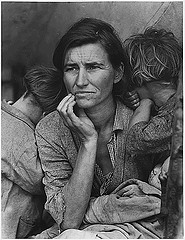Originally published September 15, 2013
My growing network is quite aware that I am working on a second book. One that is far closer to the writings my husband encouraged for so many years. The years, that is, before dementia took him away from me. He has a Ph.D. in philosophy and a Masters or two in math and science. He devoted much of his life learning how we think so that he could teach machines how to think. He is also a half-breed of sorts having been raised by a devout Catholic mother and a committed Jewish father. Honed by both the Jesuits and the rabbis, his quite brilliant mind led him to a life of wonder at the workings of the universe, both great and small, and in an ongoing debate with a God he loved but constantly challenged. He was, in many ways, my own private Job.
I don’t say this because he experienced anything like what happens in this passage of scripture. I say this because he sought answers from the source. He would look at available information. He would compare the current wisdom. When it was all said and done he refused to solidify his own opinion until he had pushed his knowledge as close to the source of the query as he could. He never stopped looking until the disease robbed him of the ability to think logically.
My own journey with Job started many years ago. Many of the things that I had become convinced of were discussed way into the night as I came to know my husband and as we shared our mutual wonder. Debating with such a mind was refreshing, intriguing and challenging. It meant that simple answers, stock answers, were not going to stand up. It meant that I had to really explore the whys of my thoughts and construct reasonable arguments to support them. As time went on he insisted I should write. Now that he no longer knows I am, I do.
I have begun to introduce some of the thoughts contained in my new book on this blog. For instance, some of the ideas expressed in a review of Dr. Erhman’s book, God’s Problem. In order to write the book, Redefining Job and the Conundrum of Suffering, I have returned to research mode. Do my ideas still stand? Has life changed my mind, given me different perspectives? Are the quotes and sources I knew from so many years ago accurate in my memory? So, I am driven back to basic research. I am finding that my core beliefs have not changed. I am spending the time necessary to collect historical, religious and philosophical interpretations. To learn what I can of the writing of the piece, of what supporting evidence there is for the when or who of the book. However, those things that speak to me have not changed. As I develop the manuscript I will invite my readers to see what those treasured thoughts are and why I think they are so very important. For the full debate, however, you’ll have to buy the book. For this week’s contribution I thought I would explore who, then, is my friend?
I believe that this is one of the pillars of the lessons from Job. We, as the audience, are informed at the very beginning that Job is a blameless man. He is an upright man that avoids evil and watches over his family faithfully. It is made clear to us, the observers, that the events that are about to take place are not due to any failure on his part to meet the requirements of a demanding or loving God. Why then, have we spent millennium trying to sort out the arguments of his friends seeking some answer to his questions? They want to blame him. The more he questions his situation, the more adamant they become. They are certain he is filled with unclean thoughts and intentions because there is no other way for them to find a “cause” for the “effect” they see before them. This debate takes up a great deal of the poem. God’s response to this tirade? “Who is this who darkens counsel, Speaking without knowledge?” (Job 38:2 from Tanakh, a translation by the Jewish Publication Society). Job’s friends actually get in a lot of hot water and are commanded to go to him in order to have a sacrifice performed for their forgiveness.
Even after millennium of debate over “the purposes of suffering” the answer still rings in my ears: “Who darkens my council?” Obviously, my new book would be rather shallow if it didn’t offer some of the substance of this debate, and it does. I use writings from Jewish and Christian writers who formed the foundation of our modern thought on the matter as well as more modern interpretations. I also explore the response to human suffering from other cultures and religious practices. In what I hope is a conversational tone I lead my reader through the history of what we have thought about the book so that I can better show how I arrived at my conclusions. Occasionally, I find a glimmer of those thoughts. Or, something I strongly believe hiding in the midst of things that make me shake my head. Here is a bit of what I take away from “Job’s friends.”
It doesn’t really matter what Job has done or not done to “deserve” his current circumstances. That is made abundantly clear in the very first scenes. But Job’s friends, much like our own, out of fear or even arrogance are certain sure they know the cause. We live in a world where the vagaries of nature, violence, and general human sorrow keep us asking “Why?” And, just like Job’s friends, there is always someone (or many) who is absolutely certain that the problem at hand is due to some infraction of some universal law. While such an individual is so terribly busy coming up with reasons why, they are missing a fundamental point.
Deep in my heart I believe that the lesson of Job’s friends is that the question is not just “Why?” The questions should also be “what” and “where.” What is happening and where can I help? In Matthew 22:34-40, Jesus is asked “Master, which is the greatest commandment of the Law?” His answer? Love God and love one another, on these two commandments hang the whole law and the prophets. This is not a new covenant law. This is a quote of the law found in Deut 6:5 and Lev 19:18. Job’s friends never got beyond the debate. They never looked at Job as a friend in need. That was their gravest error and, to me, one of the most important lessons of the whole book.
It is not a thought to take lightly. In Matthew 25:31-46 a scene is described in a somewhat familiar passage that discusses the separation of the sheep from the goats. Take note that the test of who is which is not who prayed more, sinned less, or preached more. The passage says nothing about how many souls you tried to save from abortion, misguided life styles or the evils of sin, sex and money (or lack thereof). The defining qualification is this: “For I was hungry and you gave me food; I was thirsty and you gave me drink; I was a stranger and you made me welcome; naked and you clothed me, sick and you visited me, in prison and you came to see me. …in so far as you did this to one of the least of these brothers of mine, you did it to me.” (New Jerusalem translation) It’s not about blame. It’s about doing what is needed when it is needed.
Some years ago in a previous marriage, my husband, our business partner and I were preparing for a number of guests at our home for the 4th of July weekend. The three of us were developing a place situated on acreage where people could come away for awhile and rest; a place of reflection. Our partner was an integral part of our little family, living in his own trailer but spending much of his time with us. Due to a lifetime of alcohol abuse, his too-young body finally gave out and in the middle of the pre-celebration night he died of a massive coronary arrest. There was no way to change our plans, in fact they grew more complex because now we had a memorial to plan as well.
The following morning, as I was preparing for the guests that were about to arrive, a very dear friend of mine called. She communicated her condolences and added the usual, “If there’s anything I can do to help.” With a sigh I said I felt like we had most things under control, I just had to figure out how to get our house cleaned and his trailer prepared for his daughter’s arrival. Her response? “When do you want me there?”
What kind of story would we have if Job’s friends had arrived, stayed with him during the seven days of grieving, and then stood up and said, “Where do we start?” “Job, can we help your wife bury your children?” “Would you like us to find who is left of your household and secure your property?” “Is there something left in the fields we can have harvested in support of your wife?” Scripture being what it is we often find a record of what we do, rather than what we should do. But in the telling of those things we are prone to do, there is a point when we can see what we should do. Who then is your friend, your neighbor, your brother or sister? Sometimes it is important how an individual gets into a predicament. More often than not it really doesn’t matter. What matters is what we do about it.
I would like to add a few links to organizations that have impressed me. Reaching out and touching a life can be as simple as a donation online, or a smile on the street. It doesn’t have to involve money, sometimes it is just a bit of time that’s needed. Learn to become sensitive to those who are around you and you just might catch that incredible moment when what you have to offer is exactly what a fellow being needs.

What is Habitat for Humanity International?
- A nonprofit, Christian housing ministry that believes that every man, woman and child should have a decent, safe and affordable place to live.
- We build and repair houses all over the world using volunteer labor and donations.
- Our partner families purchase these houses through no-profit, no-interest mortgage loans or innovative financing methods.
Heifer currently provides over 30 types of animals to families in need in more than 40 countries, including the U.S.
The Rose International Fund for Children
The primary mission of The Rose International Fund for Children (TRIFC.org) is to improve the lives of children in Nepal, particularly those who have a disability.
The Bart D. Ehrman Foundation is a not-for-profit organization whose overarching purpose is to raise money for charities devoted to poverty, hunger, and homelessness. All money collected from membership fees is given over to charities devoted to helping those in need.







No Comments